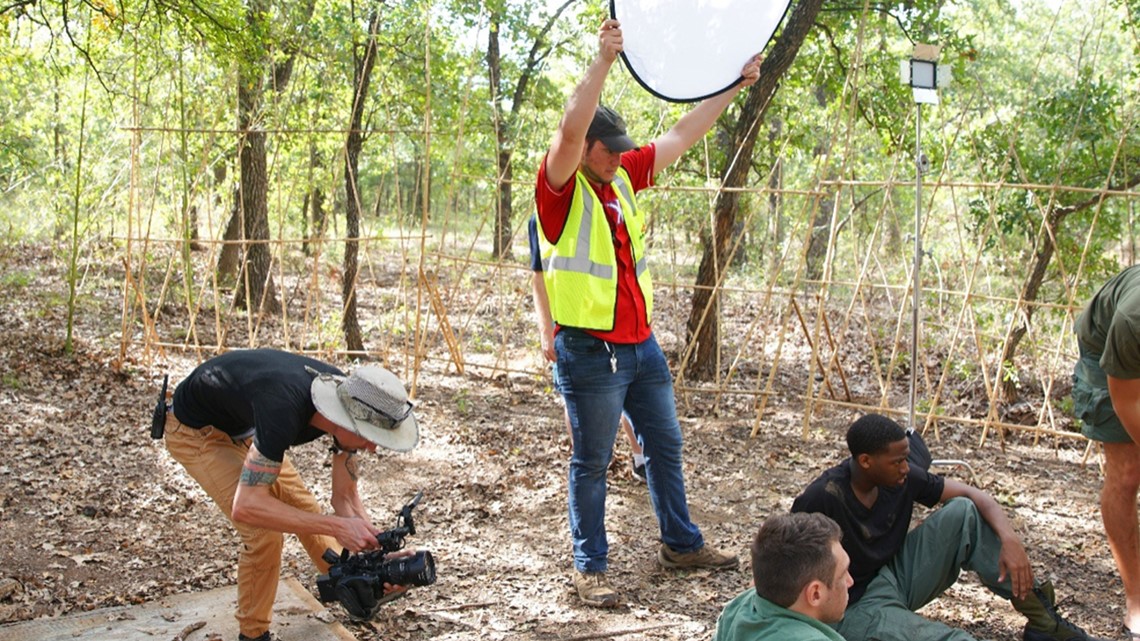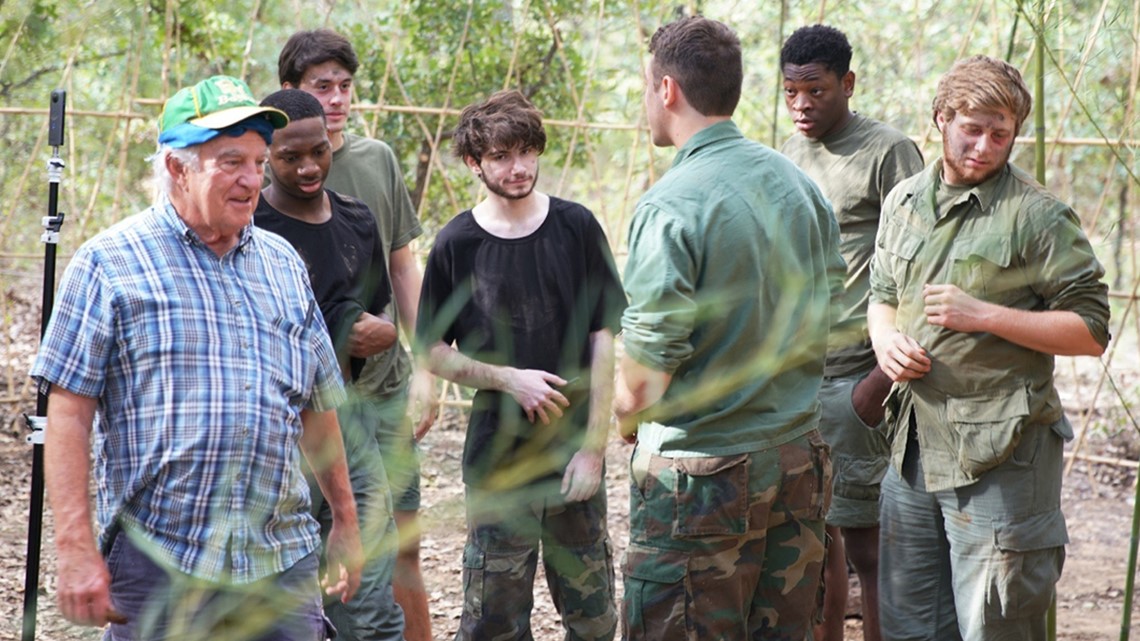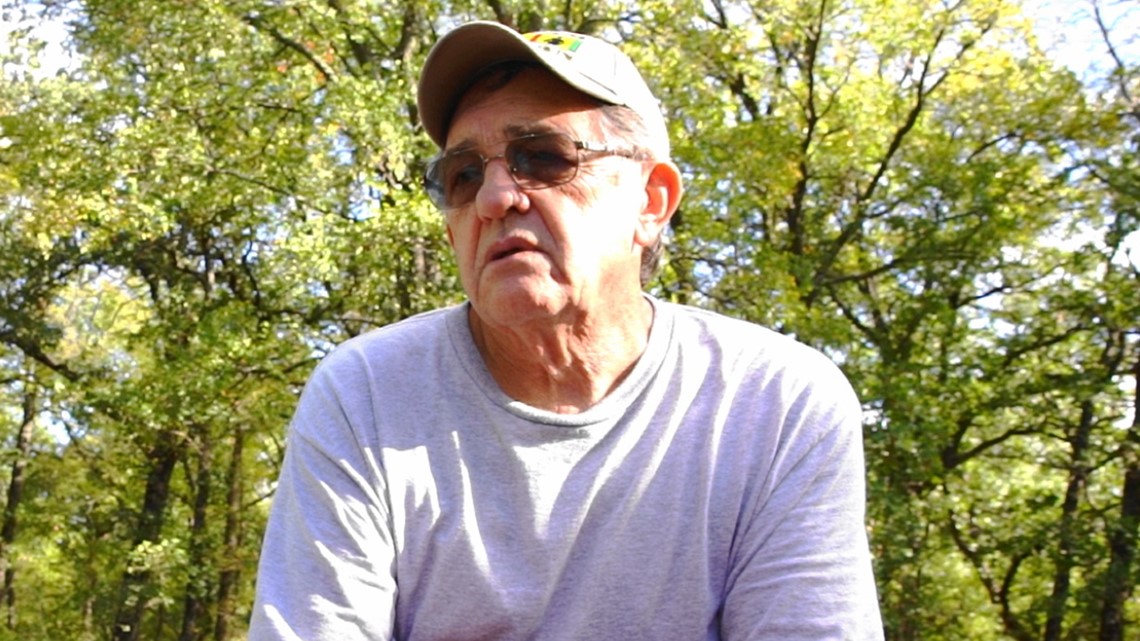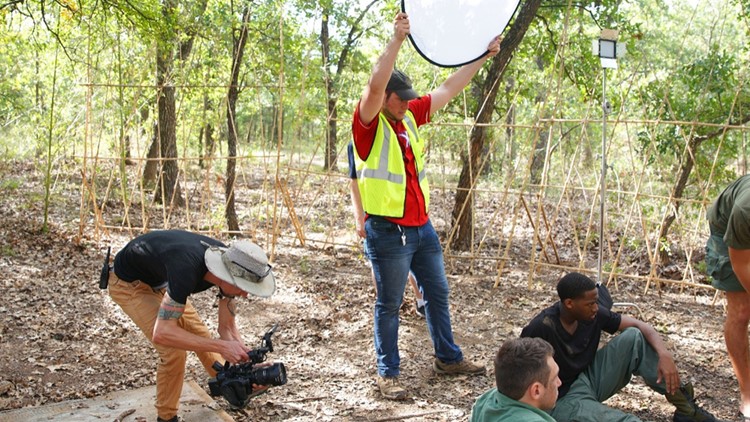South of Fort Worth, outside the small town of Joshua in a farmer’s woods, sits a young man wearing a Non la, the conical Vietnamese hat. He is in an infamous Viet Cong prison camp known as ST18. Or so the movie directors would have you believe.
You are on the set of "Wake Me When It’s Over," a documentary about the tortured agonies of three American helicopter crewmen shot down over South Vietnam in 1968. There’s a replica of a hooch, GI slang for the thatched grass huts of Vietnam, a gaggle of extras, a campfire, a smoke machine and video camera.
All are here to tell the story what began on the night of Jan. 5, 1968. Frank Anton, Robert Lewis and James Pfister flew their Huey gunship into enemy fire in an area known as Happy Valley, where the Viet Cong were massing forces for the Tet offensive. Their helicopter was hit, and it crashed into a rice paddy. Anton, the pilot, Lewis, the door gunner, and Pfister, the crew chief, were captured and would spend 62 months imprisoned by the Viet Cong .
“Anton was injured, and they carried him around in a hammock,” said Chuck Carlock, himself a former Vietnam chopper pilot who served with Anton. Carlock, a Joshua native, has made memorializing the helicopter war his hobby for more than two decades. His book, Firebirds, is an account of what he experienced as a chopper pilot in the 71st Assault Helicopter Company. The tale of Anton and his crewmates is one of the more notable of the war and has spawned several books.


“Their prison camp (ST18) was in South Vietnam,” Carlock said. “The Viet Cong kept moving it to evade capture. The suffering—torture, dysentery, hepatitis, edema, and lack of food – was almost unbelievable. Eventually, they got moved to Hanoi in North Vietnam, to the prison camp known as the Hanoi Hilton. Conditions there were so much better it really was a Hilton by comparison.”
As we spoke in lawn chairs near the movie set, Carlock was joined by Dwayne Williams, another Vietnam chopper pilot who trained with Carlock before going to Vietnam. Like Carlock, “Willie” Williams, 74, has made it his mission to see that the Vietnam service of helicopter pilots is not forgotten.
“It’s tremendously therapeutic for all of us to share, if only with each other, what we went through during the war," Williams said.
Carlock and Williams came together in the making of "Wake Me When It’s Over." Williams had already written and produced a short documentary called "An Old Friend," shot by Austin Williams, his grandson, and filmmaker Tyler Case. In talking to Carlock, Williams heard about ST18.
“It was astounding what they went through," Williams said. "They ate bugs. There was no food. They were kept in cages. For five and a half years!”
The two young filmmakers went to a reunion of Anton’s helicopter unit, interviewed Anton and his crewmate Pfister, and knew they had a movie.
“It brings chills to your body, when you hear them talk about certain things,” said filmmaker Case. “That’s what attracts me to projects like this, that can live on and inspire people.”


Chuck Carlock, who became a successful Fort Worth accountant after the war was over, is funding the project. He has gradually assembled a collection of Vietnam memorabilia, including two helicopters at what he calls his homeplace.
"Wake Me When It’s Over," aimed for the Military Channel, will be followed by a two-hour feature film with similar roots.


The two young filmmakers, both of whom call Willie Williams ‘grandpa,’ say the stories are an emotional investment.
“They’ve become,” said Austin Williams, who really is Willie’s grandson, “a big part of our lives.”

